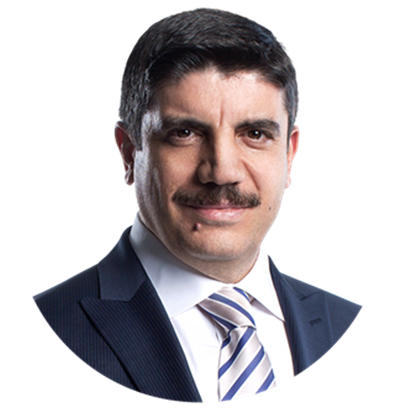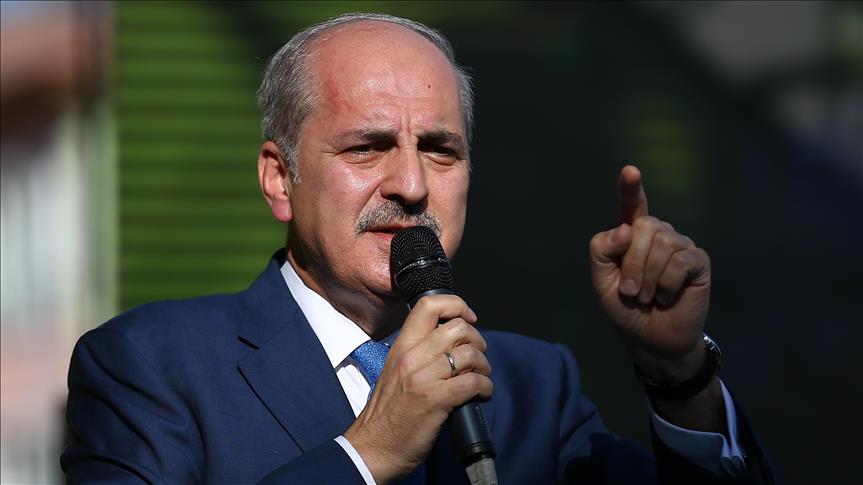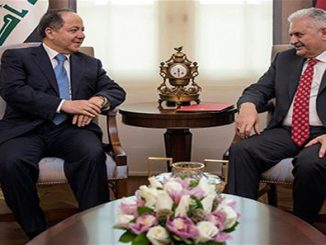
BY: Yasin Aktay*
President Recep Tayyip Erdoğan’s statement, “The world is bigger than five,” which is regarded as a principle for those who seek justice, should be approached as the need for a reform of the system instead of a merely simple revision.
From the mid-1990s, especially during Kofi Annan’s time, it was expressed that the U.N. needed to be reformed. Annan took this seriously and prepared several reform bills, believing that it could use U.S. power while reforming the system. The U.S. however blocked its ears to the U.N.’s reform talk, as it did not have serious problems at the time or thought it could overcome these problems on its own. It was argued that the U.N. was prepared to make some small changes after the Cold War.
According to a neo-con group in the Republican Party, the U.S. did not need an organization like the U.N. after the Cold War ended. We saw the execution of this view during the Iraq War. The U.S. occupied Iraq without receiving a U.N. order, and yet it did not face anything except for a few political reactions. However, everything that happened from the dismemberment of Yugoslavia to the second phase of the Iraq War, showed the capacity of U.S. power and certain systems’ pathologies.
The Obama doctrine which uncontrollably withdrew U.S. military power following the Bush doctrine which expanded U.S. military power without any limit in the geographical sense destroyed what is commonly known as “smart power,” all acceptances concerning extremism and understatements. The Obama doctrine created regional power gaps. It is a known fact that the universe does not like gaps. The gaps created by the U.S. were then filled with organized political structures and this was done especially by the states in areas the states were powerful. This was done by actors independent of the state in areas that the state was weak. Daesh in Syria and Iraq is the best example for this.
The recording of U.S. Secretary of State John Kerry’s voice, which was leaked to The New York Times, will intensify the discussions on the direction of U.S. foreign policies. Everyone knows that U.S. President Barack Obama was likened to former Soviet Union President Mikhail Gorbachev by the Conservatives, and that he was compared to Chamberlain, the architect of the appeasement. Kerry brings this discussion back to the agenda upon complaints of U.S. military power not supporting diplomacy. Upon listening to the recordings, we understand that there is a difference of opinion between Obama and Kerry.
Well, why did this difference of opinion arise now? After carrying out Obama’s foreign policies for four years, isn’t it meaningful that such a recording would be leaked just before the elections?
The Syrian issue is at the center of this discussion too. Yet we can say that this issue is not discussed to be resolved, but is instead used as an instrument. In other words, the Syrian issue is only an issue that is used to benefit U.S. politics, which will only deepen the problem. We can also conclude that Kerry will stick the bill of the Syrian crisis to Obama and then get ready for presidential candidacy himself
Turkey, which spoiled plans in Iraq, is not wanted
Bu we recently witnessed that the Iraqi government sent a bill complaining about Turkey to the U.N. Security Council. Putting aside the irony of the U.N.’s incompetence to solve any problem, Turkey is literally the only country in Iraq that is there solely for the benefit of the Iraqi people. While all the others are there causing greater chaos and committing massacres under the pretext of fighting Daesh, Turkey is there to find a permanent solution in Mosul and leave the area to the inhabitants of Mosul only.
While there are no countries in Iraq that are not there for invasion, there must be a reason for Iraq objecting to Turkey, which is there solely for the benefit of the Iraqis. Turkey is the only country that did not ruin Iraq, did not divide it and did not participate in the corruption.
Turkey is there in order to defend itself from the security threat against its borders and to prevent Mosul from the invasion of foreign elements and thus the savior oppression that comes with it.
Mosul’s own people can save the city from Daesh. It does not need the Democratic Union Party (PYD) or Shiite militants to help, as they will only bring further invasion. Thus this will then create serious threats to Turkey’s borders which then means Turkey has all rights to defend itself.
Besides, Turkey’s presence was actually established with the consent of the Iraqi government. The objections that arise now are only because Turkey spoils the plans made on the region. Because Turkey is the only country that can “spoil the plans,” therefore, Turkey will ultimately play its part.
*Yasin Aktay is the vice chair of the ruling Justice and Development (AK Party) in Turkey.
(Published in Yeni Şafak Turkısh newspaper on Saturday, Oct. 8, 2016)



